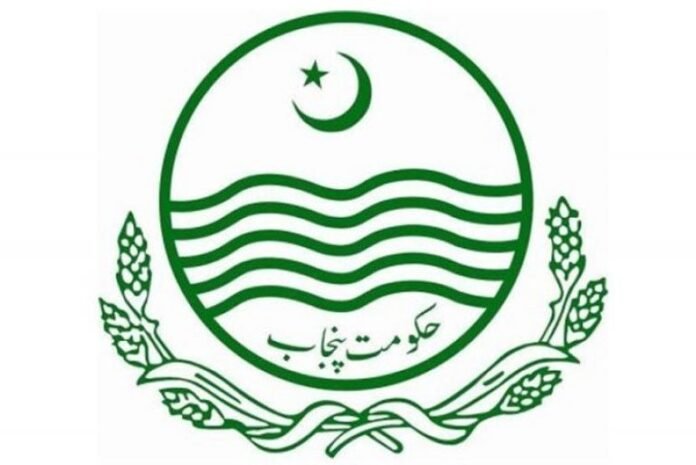Price Hike Control in Punjab: New Ministry Planned to Curb Inflation

In response to soaring inflation and growing public concern, the Punjab government has decided to establish a new dedicated ministry focused entirely on Price Hike Control in Punjab. This strategic move aims to strengthen oversight on market activities, ensure price regulation, and safeguard citizens from unjustified hikes in the cost of essential goods.
The announcement was made earlier this week during a press conference held by senior provincial officials, who stressed the urgent need for comprehensive administrative measures to combat inflation that has burdened millions across the province.
Rising Prices and Public Frustration
Over the past year, residents of Punjab have been grappling with significant increases in the prices of daily commodities such as flour, sugar, cooking oil, vegetables, and transport fares. Despite existing efforts by district administrations and market committees, the impact has been limited, prompting the need for a more centralized approach to Price Hike Control in Punjab.
From Lahore to Multan and Rawalpindi to Bahawalpur, shopkeepers and consumers alike have raised concerns about inconsistent pricing, hoarding, and lack of enforcement in local markets. According to a recent survey by the Bureau of Statistics, Punjab experienced a 16% year-on-year increase in the price of staple goods.
New Ministry to Oversee Market Regulation
To combat this crisis effectively, the Punjab government has proposed the formation of the Ministry for Price Hike Control in Punjab, which will work independently from existing departments. Its core responsibilities will include:
-
Monitoring market prices in real-time
-
Enforcing official rate lists in all districts
-
Taking legal action against profiteers and hoarders
-
Coordinating with supply chain stakeholders to stabilize commodity flows
-
Creating a price database accessible to the public
The ministry will also collaborate with district price control magistrates and field officers to ensure ground-level implementation of policies designed to prevent inflationary abuse.
Chief Minister’s Statement on the Initiative
Punjab Chief Minister addressed the media regarding the decision, stating:
“We understand the challenges faced by the people. Inflation is not just an economic issue; it affects every household. That’s why we’re establishing a dedicated Ministry for Price Hike Control in Punjab to ensure transparency, accountability, and affordability in the markets.”
He further emphasized that the new ministry would operate under a digital and data-driven model to eliminate inefficiencies and improve response times during sudden price fluctuations.
Technology Driven Price Monitoring
The government plans to incorporate technology in its bid for effective Price Hike Control in Punjab. A new mobile app is under development that will allow citizens to:
-
Check daily official prices of essential items
-
Report overcharging by vendors
-
Track government inspections and fines in real time
-
Receive alerts about market trends and changes
This digital transparency is expected to empower consumers and discourage illegal profiteering practices. Officials claim that once fully operational, the app will become a central pillar of the price control ecosystem.
Economic Experts Weigh In
Economists have largely welcomed the creation of this new ministry, although some remain cautiously optimistic. Dr. Farhan Siddiqui, an economist at the Lahore School of Economics, said:
“It’s a much-needed step. However, the success of the Price Hike Control in Punjab initiative will depend on how effectively the ministry can coordinate with various stakeholders, especially farmers, wholesalers, and transporters.”
He added that unless supply chain inefficiencies and seasonal demand issues are addressed, inflationary pressures may persist despite administrative oversight.
Challenges to Expect
While the announcement has been met with praise, several challenges lie ahead:
-
Overlap with Existing Departments: Critics argue that several price control functions are already assigned to district administrations, food departments, and the agriculture ministry.
-
Enforcement Capability: Creating a new ministry is one thing, but ensuring that it has the resources, authority, and trained manpower to operate effectively is another.
-
Corruption and Political Pressure: Historically, enforcement agencies tasked with market regulation have struggled due to political interference and corruption.
The government has promised to address these concerns by giving the new body full autonomy and legal backing.
Public Response: Hope and Skepticism
The general public has responded to the initiative with a mix of hope and skepticism. Social media platforms such as Twitter (X), Facebook, and TikTok have seen users express cautious optimism about the formation of a dedicated ministry for Price Hike Control in Punjab.
“If this ministry actually works and brings prices down, it will be a huge relief for poor families,” wrote one user on Facebook.”
Others, however, questioned whether this would just become another bureaucratic body with little real-world impact.
Comparison with Other Provinces
Punjab is the first province in Pakistan to create a full-fledged ministry solely focused on tackling inflation. Other provinces such as Sindh, Khyber Pakhtunkhwa, and Balochistan have similar departments under their agriculture or industries ministries, but none with the exclusive mandate of Price Hike Control.
This move may set a precedent and push other provinces to follow suit if the initiative proves successful. It also positions Punjab as a potential leader in adopting structural reforms to deal with economic challenges at the provincial level.
Next Steps and Implementation Timeline
According to official sources, the legislative process to establish the Ministry for Price Hike Control in Punjab is already underway. The provincial cabinet is expected to approve the proposal within the coming weeks. A detailed framework regarding the ministry’s structure, budget, and operational roadmap will be presented during the next assembly session.
Once approved, the ministry is expected to become operational by the end of this fiscal year, with initial pilot programs running in major urban centers.
Conclusion
The decision to establish a new ministry dedicated to Price Hike Control in Punjab marks a bold step by the provincial government in the fight against inflation. While the move reflects a genuine attempt to bring relief to millions of struggling households, its success will depend entirely on effective implementation, transparency, and sustained political will.
If executed properly, this initiative could not only stabilize prices in Punjab but also inspire broader reforms across Pakistan. For now, the people of Punjab remain cautiously hopeful that relief from runaway prices might finally be within reach.



